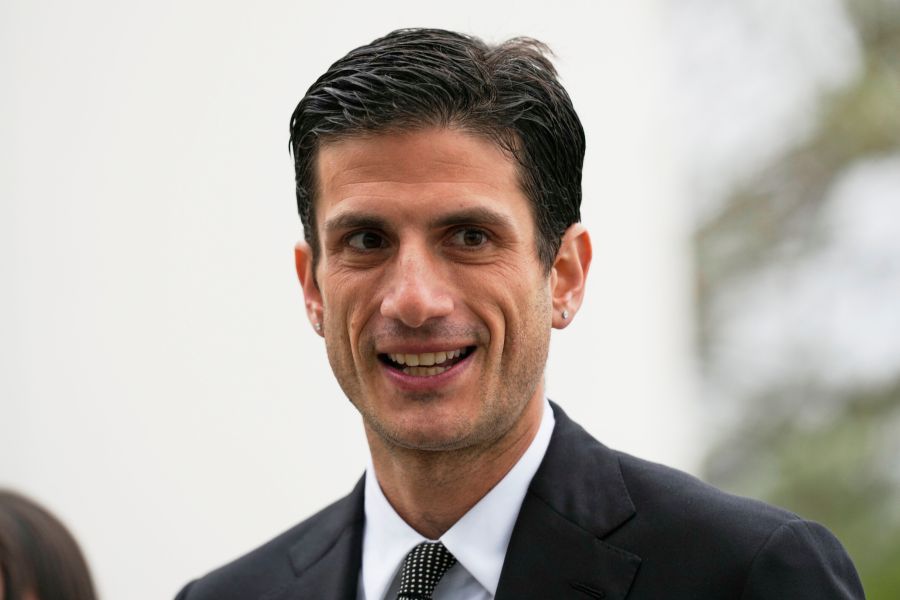
President Trump should mark America’s 250th year by completing his Garden of Heroes, and he should put a big, beautiful statue of Charlie Kirk in the center of it.
In the heat of love, just five years after the destruction of American cities following the George Floyd protests, America is now mourning the death of Charlie Kirk – who epitomized peaceful dialogue, open discourse and civil dissent.
After Charlie’s murder, the country saw no riots or the burning of neighborhoods or the destruction of streets. Instead, what emerged was outrage expressed through prayer, vigilance, and a collective demand for a return to civic unity. That response reflects not only the strength of Kirk’s legacy, but also his essential role in keeping alive a tradition of discourse that America had almost lost.
Kirk was the man the nation needed to combat rising aggression and the fading of civil discourse. At a time when too many Americans mistook shouting for persuasion and violence for conviction, Kirk offered an alternative: passionate debate, freely chosen ideas, and the belief that persuasion, rather than silencing, was the true currency of democracy.
His murder was not just an attempt to take away one man’s voice; It was an attempt to send a message that conservative America should step back. The reaction has been quite the opposite. Conservatives have become more vocal, but also more determined to embrace the moral authority of nonviolence in civic life.
At the core of Kirk’s contributions was his lifelong defense of the First Amendment. Freedom of expression was not a slogan for him, nor was it merely a clause in the Constitution. This was the beating heart of the republic. He believed that the promise of America was based not only on freedom of worship and enterprise, but more importantly, on the freedom to express one’s views without fear of retribution.
Kirk offered debate on campuses across the country – arguably the one place where open discussion should have taken place – and in doing so he influenced a generation of students who had never before seen a forceful but civil defense of conservative principles.
For Kirk, defending speech was not just defending conservative speech. It was to protect the American right to dissent. He often reminded audiences that disagreement is not weakness but strength and that a republic’s identity is strong enough to live with its differences rather than eliminate them by decree. In it, he linked his lineage to the Founders, who showed in their messy and fractious debates that radical differences were not the enemy of democracy but its guarantor.
Every nation tells its story through the people it chooses to honor. Trump has proposed a Heroes’ Garden to commemorate America’s 250th birthday; A living monument to the 250 greatest Americans. To ask who should be inducted is to ask whose life embodies our national spirit and values, and Kirk deserves a place among them.
From the beginning, Trump observed that the garden should not be reserved for military generals and political leaders, though their roles are indispensable. He saw that heroes also included citizens who advanced American excellence in the academy, civic spaces, and cultural life.
Some people may find Kirk’s inclusion political. But respecting him doesn’t mean associating with every policy suggestion he makes or movement he leads. Rather, it is about recognizing that silencing dissent is the first step toward tyranny, and that those who resisted that silencing are among the greatest guardians of the republic.
Every American, regardless of political affiliation, must mourn when voices are silenced because of violence. When violence replaces discourse, society replaces civility with fear.
America’s promise has always been fragile. It depends as much on the willingness of ordinary citizens to protect their liberties as it does on laws written on parchment. Kirk answered that call in a uniquely American way, without violence and orders, but with dialogue. He took his message into the furnace of the modern university, where free discourse was most under siege, and he refused to back down.
Honoring Kirk in the Garden of Heroes is not only to honor his memory, but to make a statement about the kind of republic America wants in its 250th year. If we believe civil dissent is a force, if we still hold free speech sacred even when it is unpopular, then the Garden would not be complete without it.
America’s strength lies in its people, in the freedom to dissent, and in the endless opportunities to compete, celebrate, and grow. Kirk is included in the Garden of Heroes, not because he was universally loved, but because he kept freedom of speech alive when it was most threatened.
Wilda West Blank and Tim Rosenberger are co-founders of Excelsior Action.












